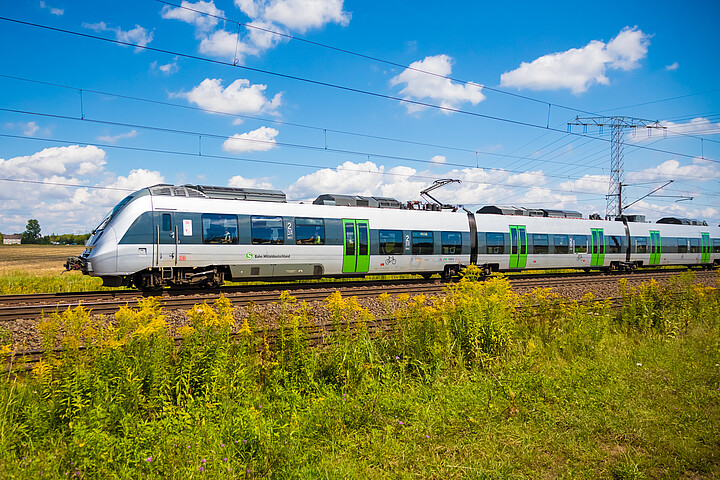Study: The benefits of public transport outweigh the costs by a factor of three.
75 billion euros in added value from buses and trains - Every euro invested pays for itself three times over - Local public transport is an important factor for the economy
When it comes to local public transport in Germany, the focus is often on the pure operating costs. Reliable calculations of the economic benefits have so far been lacking. A study conducted by the ‘MCube’ future cluster under the leadership of the Technical University of Munich on behalf of the DB initiative ‘Zukunft Nahverkehr’ (Future of Local Transport) has now shown for the first time that every euro invested in local public transport brings a benefit of three euros to the German economy. In other words, every investment pays off threefold. DB and MCube presented the study today in Berlin.
The operation of buses, trams, underground trains and regional trains costs 25 billion euros every year throughout Germany. These operating costs are a worthwhile investment: according to the study, public transport is responsible for around 75 billion euros in added value every year.
Jan Schilling, Member of the Management Board of DB Regio: "Local public transport is not only a means of transport, a climate protector and part of public services, but also an economic driver. Thanks to the MCube study, we now know the real value of local public transport. This should be a further incentive for the federal and state governments to further expand the service. Every euro invested in public transport already pays for itself threefold - a real economic booster. Investments in well-developed local transport are investments in Germany as a business location."
Oliver May-Beckmann, Managing Director of MCube and co-author of the study: "Local public transport generates around 75 billion euros in added value every year for around 25 billion euros in expenditure. That's a return on investment that pays off. We have calculated it on the basis of reliable, transparent, scientific data and thus provide the basis for sensible decisions and an objective political discourse. Public transport strengthens the retail sector, tourism, the labour market and relieves the burden on commuters. Above all, however, it saves economic costs - for example through fewer traffic accidents, less land consumption, less noise, air pollution or CO₂ emissions."
A significant proportion of added value is generated in the public transport sector itself, as well as in sectors closely related to it, such as vehicle manufacturing and cleaning services. Public transport also has an even greater overall impact on other sectors: in retail, for example, part of the turnover depends directly on public transport users, while tourism also benefits from good public transport accessibility, especially in cities and holiday regions. Furthermore, public transport promotes productive employment: buses and trains enable people to reach their workplace and help companies find suitable employees.
Public transport is already helping to reduce external costs. These are costs borne by society as a whole, for example in the form of lost tax revenue. These include traffic accidents and land consumption, as well as noise, air pollution and climate impact. Shifting the current transport performance of public transport entirely to motorised private transport would result in around nine billion additional costs per year.
Note for editors:
The study in full is available to download at www.zukunftnahverkehr.de/wirtschaftsfaktor.
The Initiative Zukunft Nahverkehr (Future Local Transport Initiative/ ZNV) was launched by DB Regio. The ZNV is a communication initiative for (more) public mobility. It brings local public transport together with society and politics to work together on concepts and solutions for better mobility and to provide a platform for innovative ideas and pioneers. Mobility is a basic need - and public transport is the most important vehicle for fulfilling it.
MCube is an association of over 80 partners led by the Technical University of Munich, who are working together to research solutions for the mobility of the future. More information: www.mcube-cluster.de


